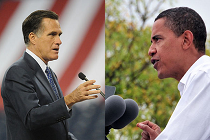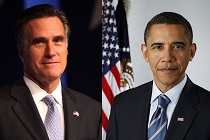Romney wins round one
The biggest change in the first U.S. presidential debate for 2012 was the way both Barack Obama and Mitt Romney moderated differences about government and the private sector. Foreign policy came up only briefly, but it will be a theme during the next round of debates later this month.








